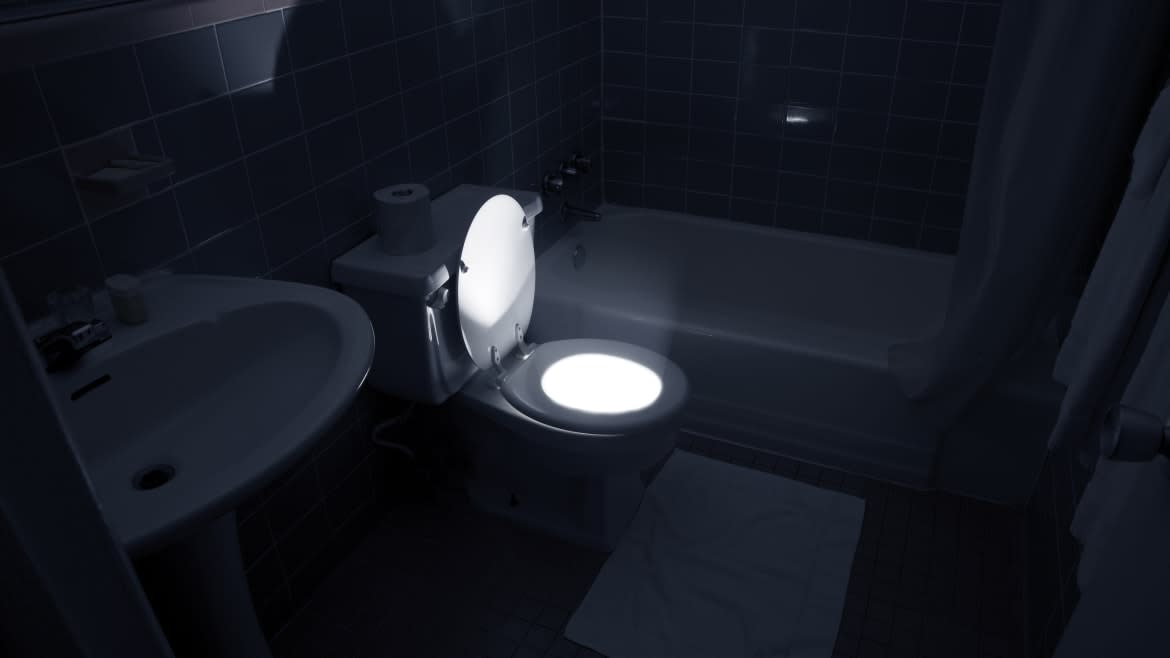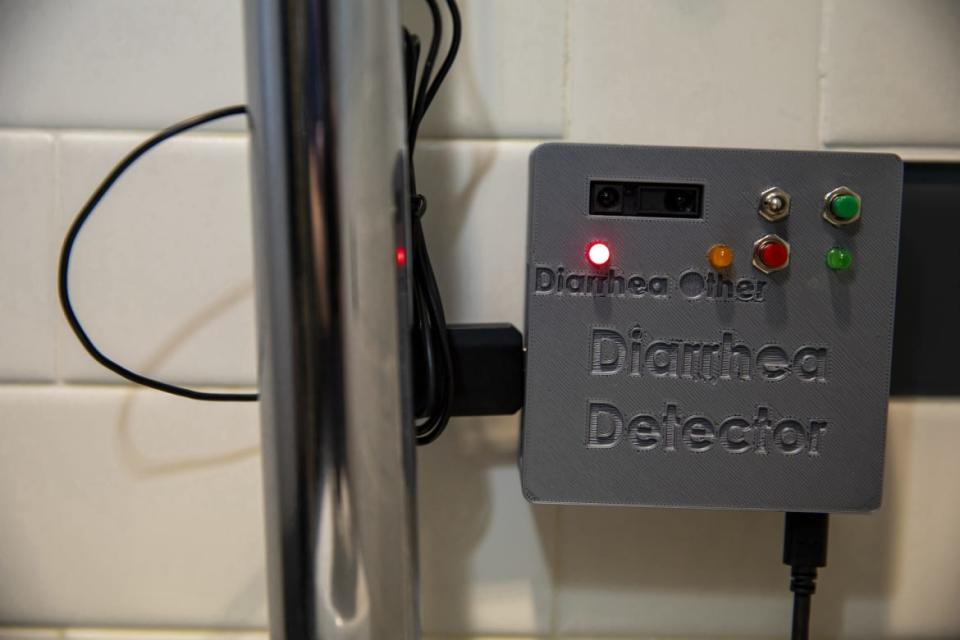Next-Gen Toilets Could Be Mic’d Up to Diagnose Diarrhea

Don’t pooh-pooh this research: Georgia Tech engineers have developed a sensor that records audio of “excretion events” and analyzes the sounds using artificial intelligence, to correctly identify diarrhea with over 98 percent accuracy. The hope is that the bathroom-based Big Brother contraption could be used to predict cholera outbreaks and help people with gastrointestinal issues monitor their conditions.
Maia Gatlin, an engineering researcher at Georgia Tech, presented her team’s new research on Monday at the Acoustical Society of America Meeting. These findings, which have not yet been peer-reviewed, build off of a related system that the same team of researchers presented last week at an annual fluid dynamics conference.
“The hope is that this sensor, which is small in footprint and noninvasive in approach, could be deployed to areas where cholera outbreaks are a persistent risk,” Gatlin said in a press release. “Perhaps someday, our algorithm can be used with existing in-home smart devices to monitor one's own bowel movements and health!”

The sensor attached to a toilet.
Once attached to a toilet, a microphone on the “Diarrhea Detector” would record the sound of a bowel movement. Without analyzing the contents of the toilet (which could give away personal genetic or diagnostic information), the sensor could determine what kind of excretion event took place and signal with a light whether diarrhea occurred. The researchers trained their sensor and algorithm on audio from publicly available online sources—the next step, they say, will be testing it out in the real world.
Cholera, a bacterial disease that causes severe diarrhea, can be life-threatening if untreated. Currently, outbreak monitoring and prevention relies on medical professionals identifying cases of diarrhea early. With the “Diarrhea Detector,” the algorithm could help look for sudden surges in community cases of watery poop—giving disease detectives a headstart on stemming the flow.
The researchers told Inverse that eventually, smart toilets can add a new layer of data collection and analysis to smart homes. Future research will look at the sounds of urination and flatulence, not just excretion, with an ear toward predicting unusual changes in each that could signal disease.
Get the Daily Beast's biggest scoops and scandals delivered right to your inbox. Sign up now.
Stay informed and gain unlimited access to the Daily Beast's unmatched reporting. Subscribe now.

